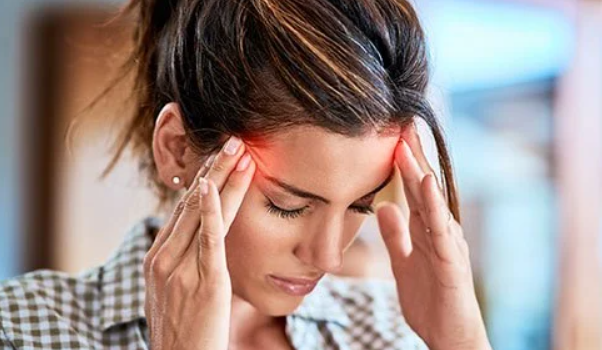All You Should Know About Migraine Medication And Other Treatment Options| Ashcroft Pharmacy

With over 10 million reported cases in adults alone, there’s no denying that Migraine is a very
common health condition in the UK. This neurological condition gives its sufferers different
debilitating effects, including nausea, pain, and visual disturbances.
While Migraine isn’t life-threatening, you need to understand it’s a painful condition that can affect your lifestyle. It can also increase a patient’s risk of experiencing ischemic, especially if the person has an aura. To avoid these issues, you can always rely on migraine medications and a few other treatment options. Read on to discover the best ways to treat migraines.
What exactly is Migraine?
A migraine, which can either be moderate or severe, is a type of headache that causes throbbing pain, which a patient can experience on one side of the head. Apart from the throbbing pain, Migraine also gives people a lot of other symptoms, such as vomiting, nausea, and sensitivity to light & sound.
Some other people only feel aura warning symptoms, such as visual disturbances, when their migraine surfaces. These symptoms can either come with or before the headache. Medications for migraines and certain lifestyle modifications, and self-care remedies are very effective in treating some migraines.
Here’s the complete list of migraine symptoms
Before or when experiencing the headache
Below are a few warning symptoms you may experience a few days before you have a migraine:
- Plenty of yawning
- Hunger pangs
- Stiffness of the neck
- Crankiness
- Anxiety
- A short depressive episode
- Decreased appetite
- Constipation
- Frequent urination and thirstiness
Aura
A migraine is known as an aura if it comes as a recurring headache. This headache is often characterized by sensory disturbances called an aura. A Migraine aura usually lasts for about 20 to 60 minutes. They tend to appear during or before the headache. Below are a few symptoms to know you have an aura migraine.’
- Speaking difficulties
- Loss of vision
- Visual signs involve seeing different shapes, flashes of light, zig-zag lines, or even bright spots. This symptom usually surfaces about an hour or less before the headache starts.
- Feelings of pins and needles around your legs and arms.

Treatment options for migraines
1. Migraine medications for relief
As you now know, migraine symptoms can be very painful. To avoid this pain, the best you can do is buy migraine medications for relief. You’ll certainly get the best results when you use the best tablets for migraines as soon as you start experiencing the symptoms.
Below are a few effective migraine pain relievers you can consider using today:
For pain relief, aspirin or ibuprofen are effective over-the-counter or prescription painkillers you can rely on today. Of course, these medicines for migraines aren’t advised to be taken over a lengthy period. That’s so because these migraine painkillers may cause headaches due to misuse and effects on other illnesses, such as ulcers and gastrointestinal bleeding.
- For mild migraine discomfort, a good medicine to use is Excedrin Migraine. This drug comes with caffeine, aspirin, and acetaminophen, which are effective to address mild discomfort.
Dihydroergotamine is a type of migraine medication that’s available in two different forms; nasal spray & injection. For the best results, consider using these medicines as soon as you start experiencing migraine symptoms. Their side effects, however, are that they cause vomiting and nausea.
riptans are effective in blocking pain pathways in the brain. As such, these prescription medications are perfect for treating migraines. Some gold examples are Sumatriptan tablets and Rizatriptan (Maxalt, Maxalt-MLT). With any of these triptan tablets, you can easily address a few migraine symptoms, irrespective of how you administer them.
You should avoid Sumatriptan and other triptan medications if you’re at a high risk of a heart attack.
2. Therapy
You can treat migraines by visiting a therapist. Today, there are two different therapy options you can rely on; electrical stimulation and learning to cope with the symptoms.
- Electrical stimulation of the nerves, also known as transcutaneous supraorbital nerve stimulation (t-SNS), is a therapy option that involves using a device. This device activates a low-level electrical current, which helps to stimulate your nerve’s upper branches (trigeminal).
- On the other hand, Learning to Cope or LTC involves exposing yourself to stimuli. This approach gradually helps you to lessen your sensitivity to migraine symptoms.
3. Diet
Diet modifications can also help to address certain migraine symptoms. This process involves adjusting your diet lifestyle, depending on the symptoms you frequently experience. For instance, processed meats, chocolate, caffeine, and alcohol often worsen migraine conditions. Diet modifications require you to avoid these foods to prevent triggers.
4. Migraine surgery
Surgery for migraines is another effective treatment option for these neurological pain conditions. It’s pretty quick and usually only takes about one or two hours to complete. A patient needs to be under local anesthesia when undergoing this procedure. This anesthesia will help to reduce the duration and severity of the Migraine.
Of course, surgery for migraines is not suitable for all migraine sufferers. To be eligible, you must have chronic migraines, which migraine medications can’t treat. You’ll get the best results if you respond well to local anesthetic injections, such as Botox.
The side effects of surgery include:
- Bruising and swelling, which could disappear within two weeks after your surgery.
- Bleeding
- Nerve difficulties
5. Self-care
Depending on your migraine condition, your doctor will tell you a few self-care routines you can engage in to treat your migraine. The following are a few reliable self-care treatment options:
- You certainly need to practice a proper sleep-wake cycle.
- Stay away from rigorous exercises.
- In addition to sleeping and waking up the right way, you also need to eat your meals on schedule.
- Stress management is also important for your self-care










